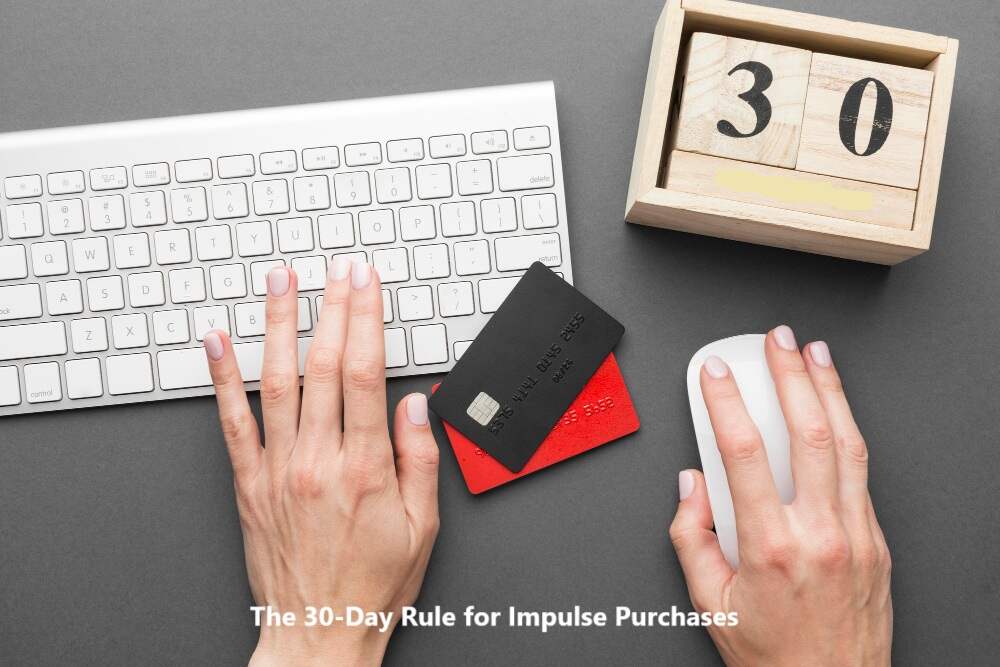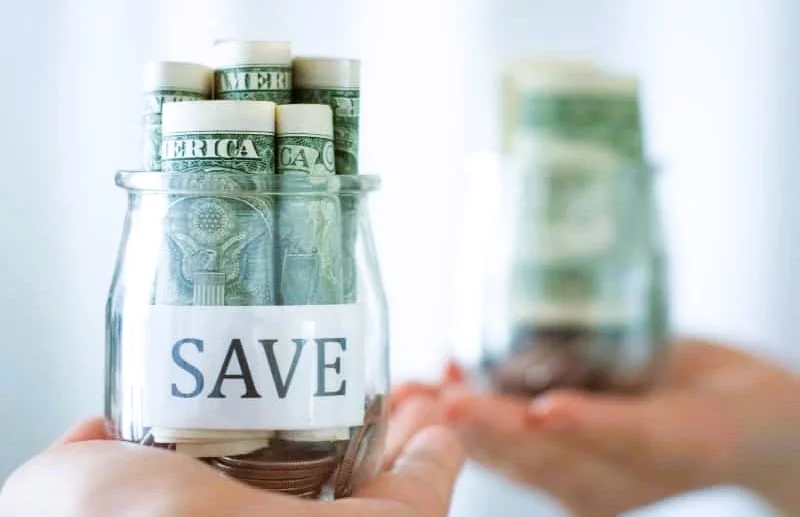In a world obsessed with accumulation, minimalism presents a refreshing and intentional counter-narrative. While minimalism is often thought of as simply reducing physical possessions, its principles extend far beyond that. Minimalists live by the philosophy of owning less to make room for what truly matters—freedom, purpose, and, importantly, financial well-being. This approach can significantly reduce your expenses and, in turn, help you save more money over time.
By integrating minimalist practices into your financial life, you’ll find that owning fewer items can actually create more space—both literally and financially. In this article, we’ll dive deep into 20 Genius Ways Money Hacks for Minimalists: Save More by Owning Less to boost your own savings and financial freedom.
The Power of Mindful Consumption
Minimalists prioritize mindfulness in all areas of life, including their spending habits. Instead of mindlessly purchasing items due to external pressures or fleeting desires, they take a moment to evaluate the necessity and value of each purchase. This mindful approach allows them to avoid overspending and accumulate only what truly enhances their lives.
Money hack: Practice conscious consumption by evaluating the purpose and impact of your purchases. Ask yourself whether the item is truly needed, how long it will last, and if it aligns with your values. The more intentional your choices, the more money you’ll save by avoiding unnecessary buys.
Read More: How to Save $25k in 6 Months
Define Your Needs, Not Wants
One of the key lessons from minimalism is understanding the distinction between needs and wants. Minimalists are experts at identifying what’s essential and letting go of anything that doesn’t add value to their lives. In today’s world, consumer culture often blurs the line between needs and wants, leading to excess spending.
Money hack: Create a budget or spending plan that differentiates between needs (rent, food, utilities) and wants (clothes, gadgets, luxury items). When shopping, ask yourself if the item is something you truly need or simply a desire that can be put off.
The Art of Decluttering
A major principle of minimalism is regularly decluttering your living space. The act of purging unnecessary items not only creates a more serene and functional environment but also offers an opportunity to generate extra income. Selling items you no longer need, such as clothes, electronics, or furniture, can quickly turn unused clutter into cash.
Money hack: Go through each room in your house and identify items that no longer serve a purpose. Sell them online, host a garage sale, or donate them to charity. The extra funds can be directed toward your savings or used to pay off debt. so here is the next part of 20 Genius Ways Money Hacks for Minimalists: Save More by Owning Less Start:

The 30-Day Rule for Impulse Purchases
One of the biggest culprits behind overspending is impulse buying. Whether it’s a new gadget or an item on sale, it’s easy to be swayed by the allure of a “good deal.” Minimalists avoid this trap by using the 30-day rule. The idea is simple: before purchasing anything that isn’t essential, wait 30 days. During this time, you’ll have the chance to reconsider the necessity of the item, and often, the urge to buy will pass.
Money hack: Implement the 30-day rule in your shopping routine. If you find yourself tempted by a non-essential item, give yourself a 30-day waiting period. This can drastically reduce impulse purchases and help you focus on long-term savings.
Read More: How to Save $25k in 6 Months
Invest in Quality, Not Quantity
Minimalists tend to invest in high-quality items that last longer, rather than buying a large quantity of cheap, disposable products. This may mean spending more upfront, but it ultimately saves money in the long run as you won’t need to replace low-quality goods frequently. High-quality products often come with warranties or guarantees that can further reduce your overall cost of ownership.
Money hack: Instead of buying multiple low-cost items, invest in fewer, higher-quality products. For example, purchase a durable pair of shoes or a versatile piece of furniture that will stand the test of time. Over time, these purchases can save you money on replacements and repairs.
Downsize Your Living Space
One of the most effective minimalist money hacks is to downsize your living situation. Many minimalists choose to live in smaller homes, apartments, or even tiny houses. Reducing your square footage can cut down on rent, utilities, and maintenance costs. A smaller living space encourages you to own fewer things, which further reduces your spending and stress.
Money hack: If you’re renting or own a larger home than you need, consider downsizing to a smaller, more affordable space. A smaller living space not only saves money but also encourages a more organized and simplified lifestyle.
Read More: How to save $3000 in 3 months
Limit Subscriptions and Recurring Expenses
In today’s digital age, it’s easy to accumulate a long list of subscriptions—streaming services, gym memberships, premium apps, and more. Minimalists understand that these small, recurring expenses can add up over time and become a financial burden.
Money hack: Review all of your subscriptions and recurring costs. Cancel those you rarely use or don’t provide significant value. By limiting these expenses, you can free up money that can be better allocated to savings or debt repayment.
Opt for Experiences Over Material Things
Minimalists often find that experiences provide more lasting happiness than material possessions. Whether it’s traveling, taking a cooking class, or spending time with loved ones, experiences enrich your life in ways that things cannot. By prioritizing experiences, you’ll reduce the desire to acquire more stuff.
Money hack: Shift your spending from material possessions to experiences. Travel, attend concerts, or engage in activities that bring you joy and create lasting memories. Not only will this improve your overall well-being, but it can also keep your spending in check.
Embrace the “One-In, One-Out” Rule
Minimalists live by the one-in, one-out rule, which helps prevent the accumulation of unnecessary items. For every new possession that enters your home, an old one must leave. This practice ensures that your space and finances stay clutter-free and intentional.
Money hack: Before purchasing any new item, commit to removing an existing one. This rule can help you keep your purchases under control and avoid spending money on things you don’t truly need.
Reduce Food Waste
Minimalists are often conscious of the resources they consume, including food. One area where many people overspend is in food waste. Buying excess groceries and throwing away unused items not only costs money but also contributes to environmental waste.
Money hack: Plan your meals, buy only what you need, and use leftovers creatively. Reduce impulse buying at the grocery store and focus on consuming what you already have at home. This simple habit can save you a significant amount on your monthly food bill.
Read More: How to save $3000 in 3 months

Automate Your Savings
Minimalists often favor automation in various aspects of their lives to reduce decision fatigue. One of the best ways to save more money is by automating your savings. This takes the effort and thought out of saving, ensuring that a portion of your income is always set aside for the future.
Money hack: Set up automatic transfers to your savings or investment accounts as soon as your paycheck is deposited. Treat savings as a non-negotiable expense, just like rent or utilities. This will ensure you consistently save without having to think about it.
Avoid Lifestyle Inflation
As your income increases, it’s tempting to upgrade your lifestyle—buy a new car, move into a bigger home, or splurge on expensive vacations. Minimalists avoid this pitfall by resisting lifestyle inflation. Instead of spending more as you earn more, they maintain their modest, intentional lifestyle and allocate the extra income toward savings or investments.
Money hack: When you receive a raise or promotion, resist the urge to upgrade your lifestyle. Instead, put the additional income into savings or use it to pay down debt. This practice will accelerate your financial growth and create long-term wealth.
Embrace DIY and Upcycling
Minimalists often find joy in creating or repurposing things rather than buying new ones. Whether it’s fixing broken furniture, upcycling old clothes, or cooking meals at home instead of dining out, DIY projects help minimize unnecessary expenses while encouraging creativity.
Money hack: Before buying something new, consider whether you can repair, repurpose, or create it yourself. Upcycling or taking on DIY projects not only saves money but can also be a fulfilling and sustainable way to live.
Read More: How to Save $25k in 6 Months
Opt for Secondhand Goods
Minimalists often turn to secondhand shops for clothing, furniture, and other household items. Buying used products instead of new ones can drastically reduce your spending, and in many cases, secondhand items are just as good as their brand-new counterparts.
Money hack: Shop at thrift stores, online marketplaces, or garage sales for gently used items. You can often find high-quality goods at a fraction of the cost, saving you money while reducing your environmental footprint.
Focus on Long-Term Financial Goals
Minimalism isn’t just about reducing physical clutter; it’s about creating space for what matters most, including long-term financial security. By focusing on long-term goals like retirement savings, investing, and debt reduction, minimalists are able to achieve financial independence and peace of mind.
Money hack: Set clear, long-term financial goals and prioritize them over short-term desires. Redirect any funds you save by practicing minimalism toward these goals. Over time, this focus will build your financial future.
Practice Gratitude and Contentment
At the heart of minimalism is a sense of gratitude and contentment with what you already have. Rather than constantly seeking more, minimalists cultivate a mindset of appreciation for their current possessions and lifestyle. This shift in perspective can lead to greater financial peace and satisfaction.
Money hack: Practice gratitude by regularly reflecting on what you already have. Avoid the urge to constantly upgrade or acquire new things. This mindset will help you save money while fostering greater happiness and contentment.
Read More: How to save $3000 in 3 months
Simplify Your Financial Accounts
Minimalists also apply simplicity to their finances by consolidating accounts, eliminating unnecessary credit cards, and choosing the most efficient financial products. By simplifying your finances, you can reduce fees, make better decisions, and stay organized.
Money hack: Review your financial accounts and eliminate any that are redundant or costly. Streamline your banking and investment accounts for ease of management and lower fees. This will save you both time and money.
Stop Keeping Up With the Joneses
Minimalists understand that comparing yourself to others is a quick way to fall into the trap of consumerism. By focusing on your own goals and values, rather than trying to match the lifestyles of others, you can break free from the need for constant acquisition.
Money hack: Stop comparing your purchases to those of others. Focus on what truly brings value to your life and ignore societal pressures to keep up. This can reduce the temptation to overspend and help you stick to a more sustainable financial path.

Cultivate a Sustainable Mindset
Minimalism and sustainability often go hand in hand. By reducing waste and consumption, minimalists naturally embrace a more sustainable lifestyle that aligns with their values and saves money in the process.
Money hack: Adopt sustainable practices such as reducing waste, buying fewer but higher-quality items, and investing in long-lasting products. These choices benefit both your wallet and the environment. so here is the last part of: 20 Genius Ways Money Hacks for Minimalists: Save More by Owning Less
Build a Life You Love, Without the Clutter
Ultimately, minimalism isn’t about deprivation—it’s about living intentionally and building a life that aligns with your values. By reducing the clutter in your physical, mental, and financial spaces, you create room for what truly matters, including savings, wealth, and peace of mind.
Money hack: Evaluate your financial life and remove any unnecessary clutter. Focus on spending in ways that bring long-term value and satisfaction. By doing so, you’ll not only save more money but also create a richer, more fulfilling life.
Conclusion
The minimalist approach to finances isn’t about deprivation—it’s about making intentional choices that lead to financial freedom and long-term satisfaction. By prioritizing needs over wants, decluttering, investing in quality, and practicing mindfulness, you can save more money and live a more fulfilling life with less.
Adopting these money hacks from minimalists can help you break free from the cycle of mindless consumption and pave the way for a simpler, more prosperous future. Whether you’re aiming to reduce debt, save for the future, or simply spend less, the principles of minimalism can guide you toward achieving your financial goals.
Reference
Mindful Consumption: How Mindfulness Can Help You Save More Money



